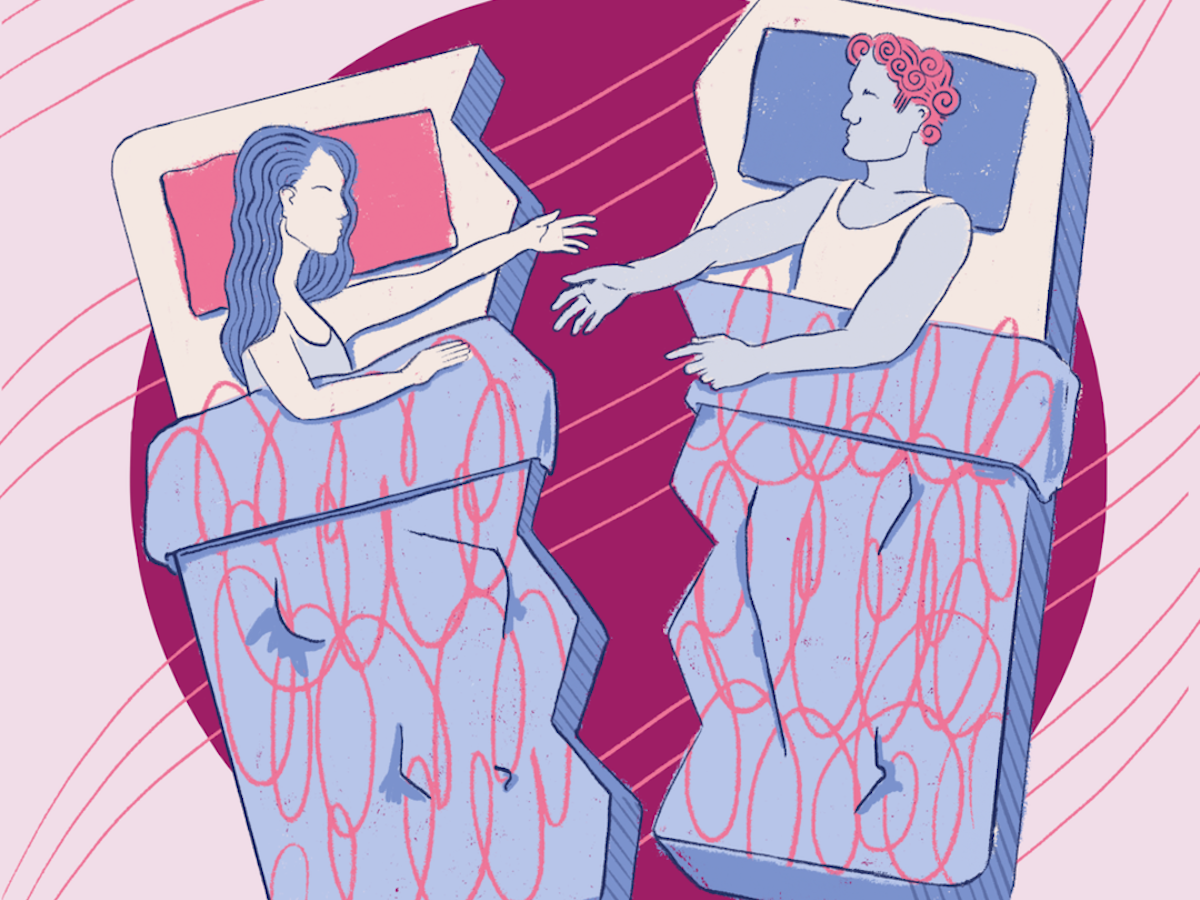The very idea of a sexual recession keeps us up at night. It’s something we never thought possible, but the last year has proven that this is a reality we can’t ignore - we’re stuck in the middle of an incredibly unhealthy drought.
Don’t believe us? Then you’re one of the lucky ones. A staggering 24% of Brits can’t remember the last time they had sex and one in five of us can’t remember the last time we masturbated. Those figures just keep getting worse for people in long term relationships - a third of couples say they can’t remember their last rampant night of pleasure.
This isn’t just due to a lack of memory. One quarter of Brits said they didn’t have sex at all in 2020. And while for some that may be due to government guidelines on social distancing and the impact of Covid, for the majority it’s because they’ve found themselves in the midst of a sexual recession.
That’s not ok.
Sex - whether with someone else or through self-pleasure like masturbation isn’t just pleasurable, it’s a vital part of a healthy life.
Why are we stuck in a rut?
In a word - uncertainty. The news agenda - from Covid to Brexit has caused our libido to plummet. And that’s not an abstract notion - Brits report feeling more anxious and less attractive than ever before.
Our woes don’t stop there. We all know how important sex is for people’s health and it’s clear the sexual recession is having a negative impact on the UK’s mental health. A third of women who say they’re having less sex also worry that their shrunken sex life is having a negative impact on their mental health.
These aren’t the only factors at play:
- A quarter of Brits say that lockdown restrictions have reduced their ability to have sex - either because they or their partner have been caught in them
- 1 in 10 of us say that working from home has decreased our sex drive, while 6% say too much time on Zoom calls is harming their libido
- 11% say the political landscape is ruining their sex life, while 23% say that a year of negative headlines more generally has taken its toll

Time to normalize sexual health
With people's sex drives drying up, they’re even saying they’ll turn to drastic measures to end the drought, with one in ten saying they'd be prepared to give up their bank holidays for better sex.
But people shouldn’t need to make drastic sacrifices - they just need the right advice. So to give it to them, we decided to build the world’s first ever sexual health Google Assistant, Pleasure Finder, to help people improve their sex lives through sexual health and wellness advice and tips.
Why a Google Assistant? We all know not everyone feels comfortable asking a friend or professional for advice and crawling the web for help tends to throw up more questions than answers. So we focused on creating what we all need from time-to-time - a no nonsense, sympathetic and judgement free source of information and answers.
We were thrilled that Clare Faulkner, one of the UK’s leading sex therapists helped us develop the skill - ensuring that we’re offering genuinely helpful advice and making the UK’s sex lives sparkle again.
Why build it? We wanted to normalize the conversation about pleasure and sexual health in the UK.
How you can get started
To get started with Pleasure Finder on a google smart device, Say "Hey Google, Talk to Pleasure Finder", and try asking a sexual health related question. To get you started how about...
"What are the benefits of sex?", "How often is normal to have sex?", "Am I having enough sex?", "What's the best time to have sex?", "Is masturbating good for me?", "How often is it safe to masturbate?", "What's the average time it takes to have an orgasm?", "What role do sex toys play in a relationship?"
We also applied for an Amazon Skill but Amazon decided to censor our Alexa Skill and it was banned for “explicit content”. If Amazon is censoring the conversation around sexual health and pleasure, then what hope do the rest of us have? No wonder we’re facing a sexual recession.
Ready to help us open up the conversation around sexual health? Join the discussion on our social channels using the hashtag #endthesexualrecession and tell us what you think or share any questions you have.















































